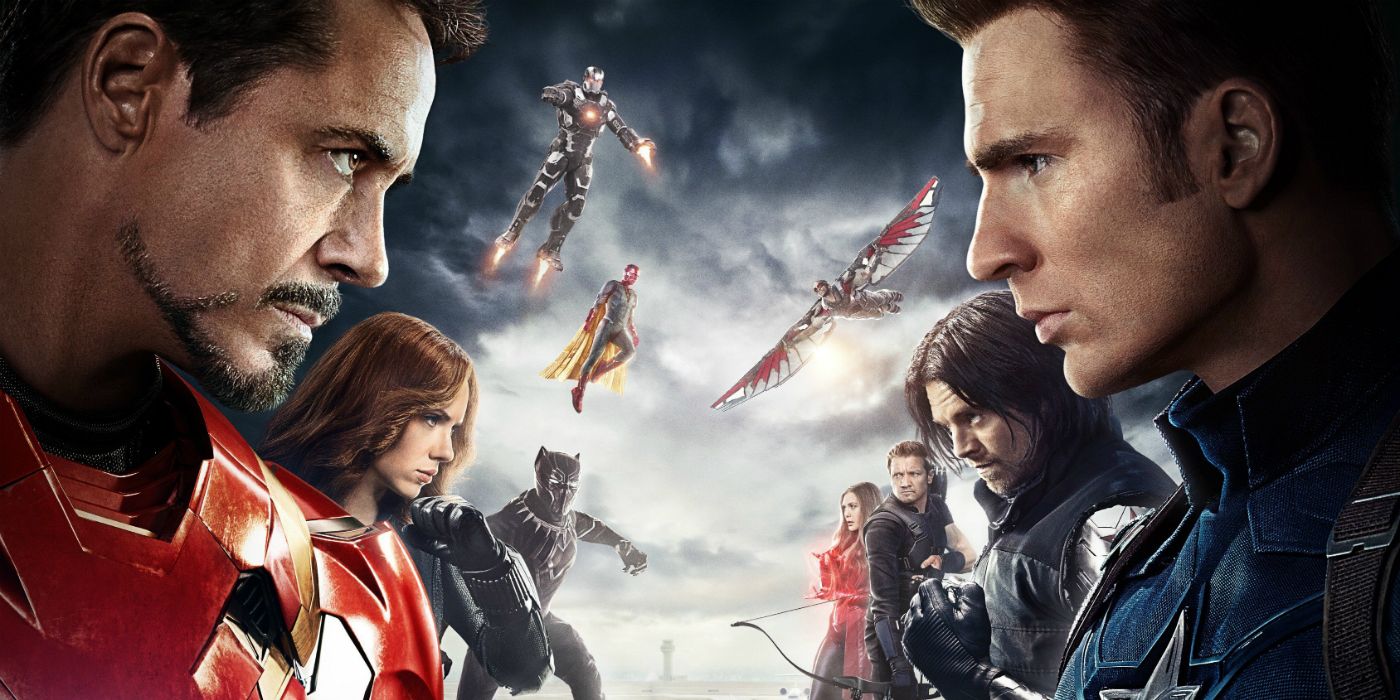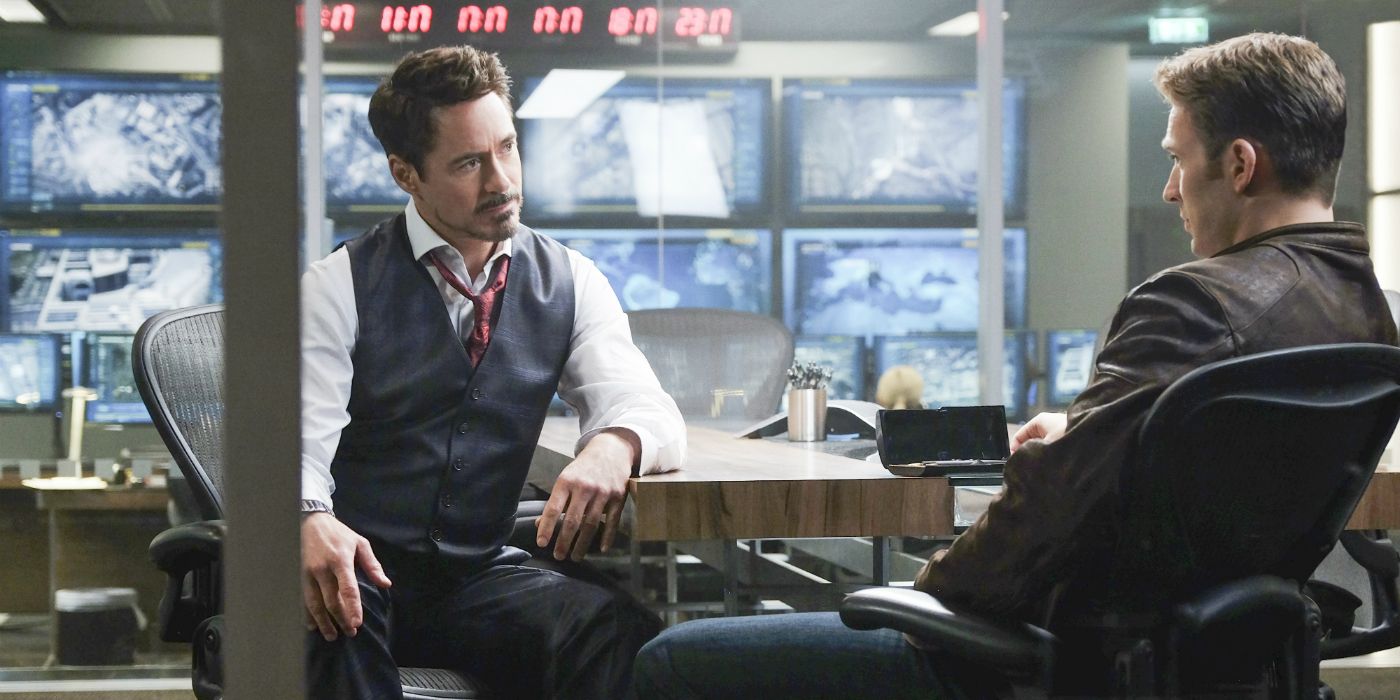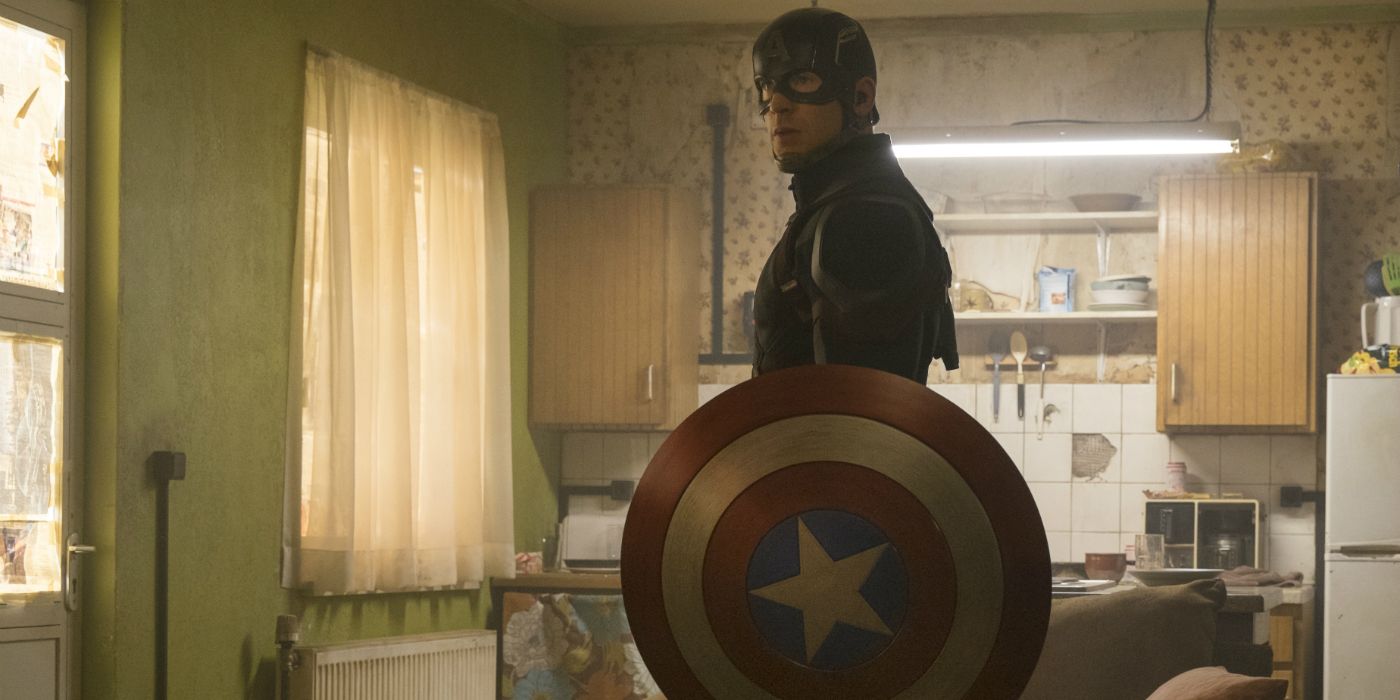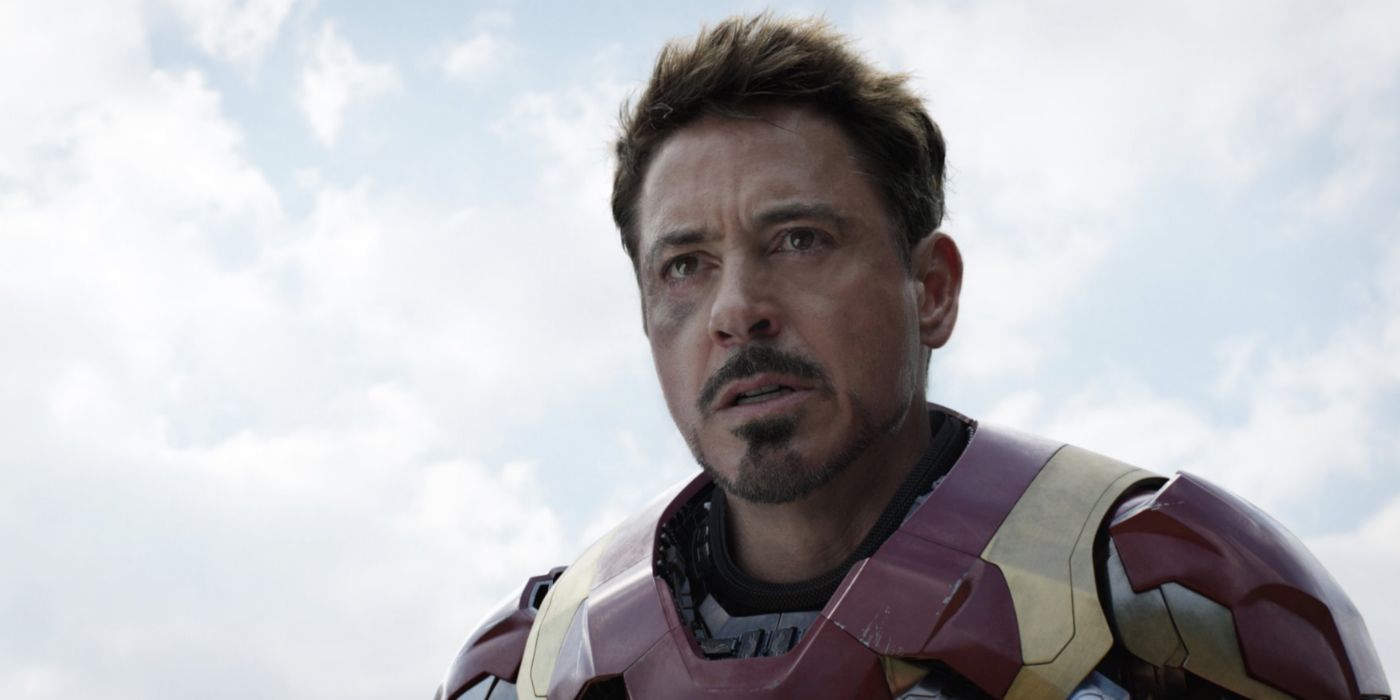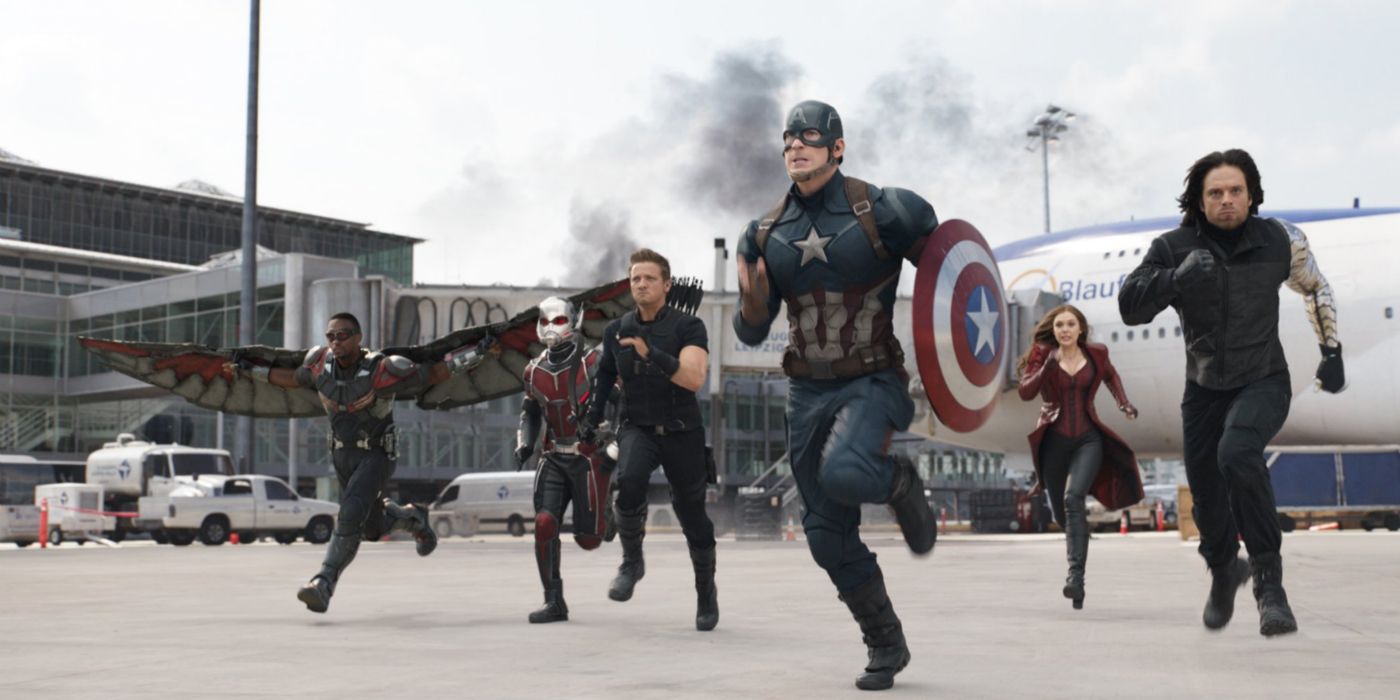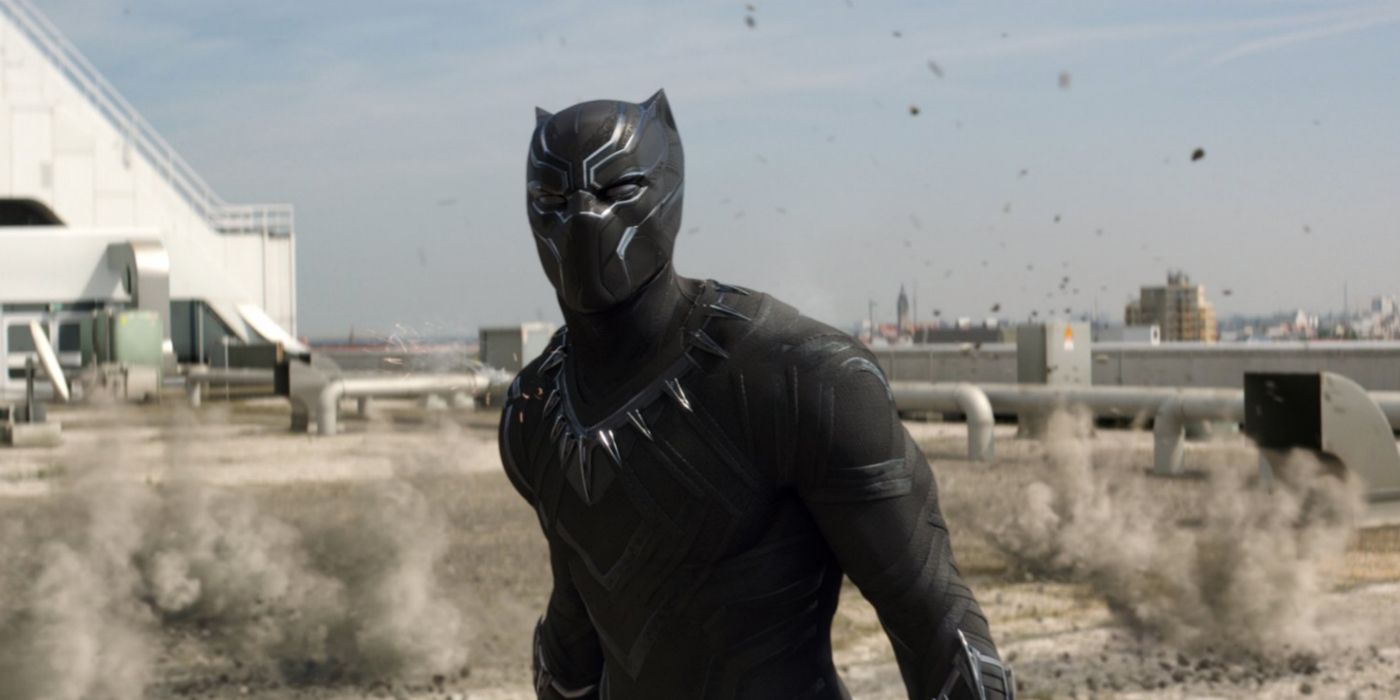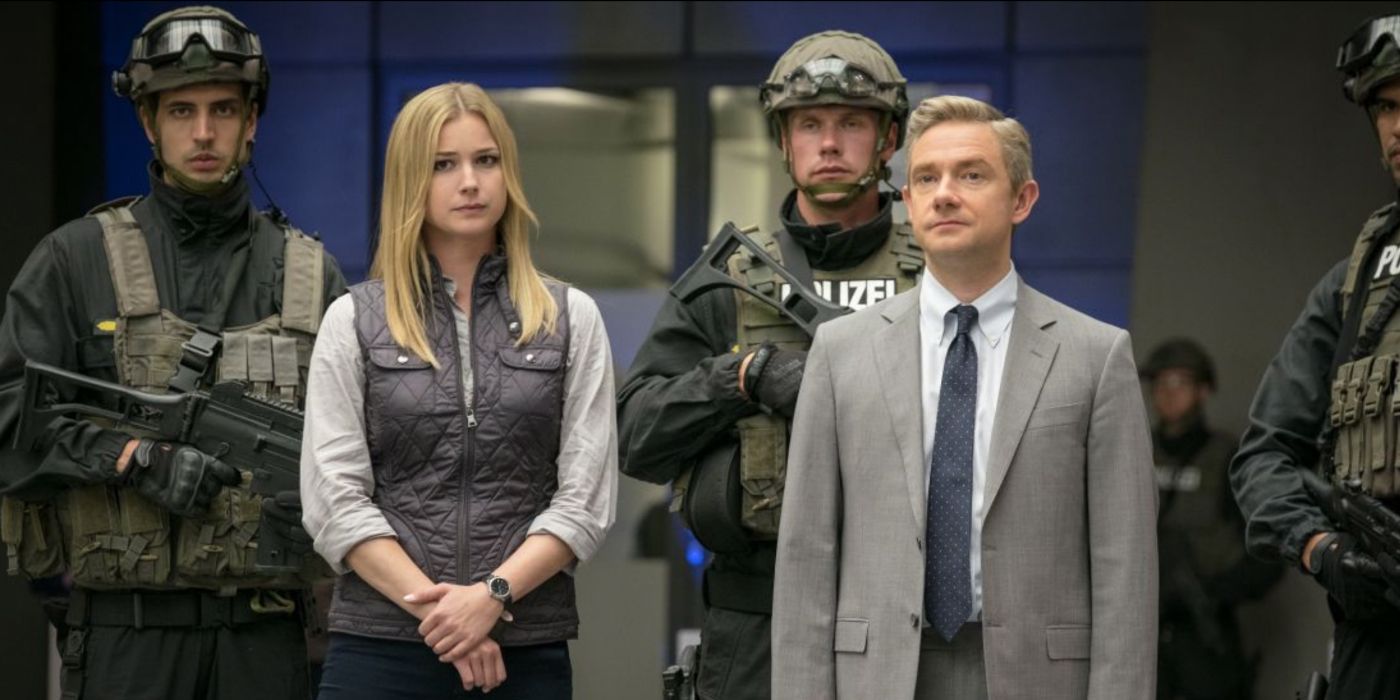Captain America: Civil War is a great superhero blockbuster that lays the groundwork for even bigger and better things to come in Phase 3 of the MCU.
Captain America: Civil War picks up with Steve Rogers (Chris Evans) and the current Avengers team one year after the events of Avengers: Age of Ultron. When a mission in Nigeria goes south, the Avengers are left facing a concerned public that has grown increasingly wary of not only Earth's Mightiest Heroes and the collateral damage they've caused saving the world, but of superheroes and/or super-powered people in general. The Avengers are then approached by former U.S. general-turned Secretary of State Thaddeus 'Thunderbolt' Ross (William Hurt), who reveals that the United Nations have come up with a "solution" to this problem: the Sokovia Accords, an agreement that requires the Avengers (and other super-powered individuals) to report to and be monitored by an international governing body.
While certain members of the Avengers (Steve among them) are concerned that conflicting governmental agendas will cause these Accords to impede rather than improve their world-saving efforts, others feel it's a worthwhile compromise - including Tony Stark (Robert Downey Jr.), who supports registration for reasons both practical and personal. However, the Avengers' hand is forced when yet another tragic turn of events occurs and Steve's onetime friend-turned brainwashed HYDRA assassin Bucky 'The Winter Soldier' Barnes (Sebastian Stan) is seemingly responsible. As it becomes clearer that the situation isn't as simple as it first appears, Steve and his closest allies must decide: which side are they truly on?
Although Captain America: Civil War might sound more like Avengers 2.5 than a third Captain America solo movie, in truth the film is closer to being a cross between Iron Man 4 and Captain America 3. Civil War, like the Marvel comic book crossover series (written by Mark Millar and illustrated by Steve McNiven) that it loosely adapts, revolves around superheroes being split over a registration act, with Steven Rogers and Tony Stark leading the opposing sides - so, it's only fitting that Steve and Tony's plot threads take priority here over other characters' storylines. At the same time, Civil War is arguably a better Marvel Cinematic Universe crossover "event" than either of the first two Avengers films, when it comes to delivering balanced amounts of standalone plot development, universe-building, and superhero-based spectacle. Civil War thus succeeds at setting the stage for Phase 3 of the MCU to be "bigger" and even more fun than Phase 1 and 2 were - even as it leaves room for improvement in upcoming MCU "event" movies.
The Civil War narrative is easily the most ambitious story that an MCU film has attempted to tell to date. Civil War screenwriters Christopher Markus and Stephen McFeely - who also wrote the first two Captain America movies - not only tackle very complicated subject matter (the issue of accountability on not just a political level, but also a personal one) but at the same time have to introduce important new characters (more on them later) and carve out room to give the supporting cast enough onscreen development so that they're not just making glorified cameos during this movie. Overall, Civil War does a very good job at carrying out this daunting juggling act - though, in order to do so, it relies on more heavy-handed plot contrivances and less effective story twists/turns compared to those in Captain America: The Winter Soldier before it.
Similar to Winter Solider, Civil War also has trouble delivering a satisfying payoff to the intriguing questions and dilemmas that it presents during its first act; but again like its predecessor, Civil War helps to make up the difference in this respect by serving up compelling character-driven drama/conflict during its third act. Moreover, Civil War features both the smallest-scale and yet emotionally-charged narrative climax out of any MCU installment so far. This is all the more appropriate since, as a whole, Civil War can be summed as part effective superhero action/thriller, but also equal parts, if not more so, engaging dramatic/psychological thriller that features Earth's Mightiest Heroes; though admittedly, while the title might suggest otherwise, Civil War is only really a superhero war movie in a figurative sense.
The Civil War movie doubles as a rich character study for Tony Stark, allowing Robert Downey Jr. the chance to showcase a wide range of emotions in what may be the actor's overall most nuanced and multi-faceted performance as the beloved snarky tech genius yet. By comparison, Steve Rogers' personal arc in Civil War isn't as engaging as the journeys that he's gone on during his previous solo movies - and at times, it almost feels like Steve is getting pushed to the back-seat in his own film, partly because the actual "ideological conflict" between Steve and Tony in Civil War is somewhat under-whelming. Chris Evans being more comfortable than ever playing the role of noble Cap, coupled with how Civil War handles Steve's relationship with Bucky Barnes (Sebastian Stan, who's also solid in his own right), helps make Steve's storyline more impactful - but in the end the MCU version of Civil War is still more interesting as an Iron Man story than a Captain America story.
On the flip side, Markus and McFeely's Civil War screenplay provides several of the supporting characters in the MCU with intriguing - and substantial - subplots; in particular Scarlet Witch (Elizabeth Olsen) and Vision (Paul Bettany), who both get to further explore their powers and limitations alike here, following their debut in Avengers: Age of Ultron. Civil War further benefits from including several fun interactions between the movie's various superhero characters, with the dynamics between Scarlet Witch/Vision and Bucky/Sam Wilson a.k.a. Falcon (Anthony Mackie) among the highlights - while Natasha Romanoff/Black Widow's (Scarlett Johansson) tendency to shift allegiances makes the scenes between her and both Steve/Tony all the more interesting for it. James Rhodes/War Machine (Don Cheadle) has a smaller, but meaningful role to play in the proceedings here by comparison, while Clint Barton/Hawkeye (Jeremy Renner) and Scott Lang/Ant-Man (Paul Rudd) are the established MCU players who get the least onscreen development - but Civil War makes up for that by giving these characters some of the best action scenes in the movie.
Speaking of which - with Civil War, directors Anthony and Joe Russo (who also helmed The Winter Soldier) deliver some of the most impressive superhero-based fight scenes and set pieces featured in any Marvel Studios film yet, in terms of both the sheer scale and creativity of the Avenger vs. Avenger battles. The Russos, with assistance from people such as Winter Soldier cinematographer Trent Opaloch as well as second unit directors David Leitch and Chad Stahelski (the longtime stunt coordinators-turned directors of John Wick), serve up several precisely-choreographed action sequences, varying from quick-cutting fisticuffs to exhilarating foot chases and combat situations that make great use of individual superhero's unique abilities. The final result: Civil War's superhero brawls deliver many a moment and "money shot" that will thrill both casual moviegoers and hardcore comic book fans, whether the fight in question involves a group brawl or one-on-one (or two-on-one) showdown.
Civil War was also partly filmed with IMAX cameras and the movie in general tends to feel big, visually-speaking, in-between its action sequences and many establishing shots of locations around the globe (as well as the massive title font that's used to identify each individual change in location) - making IMAX the preferable viewing format for Civil War. 3D, however, isn't so much of a necessity; not because 3D detracts from the experience of watching Civil War, but because the movie doesn't make significant use of the stereoscopic format to create either immersive visuals and/or noticeable pop-out imagery.
From a directorial standpoint, the Russo Brothers often succeed at balancing out the more serious plot beats and dramatic situations in Civil War with moments of levity - though at the same time, there are a number of instances where the film awkwardly injects jokes into otherwise serious scenes, seemingly out of concern that the movie is at risk of becoming too serious. Occupying flip sides of the coin, in terms of their tones, are the story threads for the two major MCU newcomers featured in Civil War: T'Challa/Black Panther (Chadwick Boseman) and Peter Parker/Spider-Man (Tom Holland). These future MCU solo movie leads are complimentary in that respect, as Peter/Spider-Man's scenes are generally more light-hearted and comedic, while T'Challa's storyline is more dramatic and weighty - both of which are fitting, given the characters' differences in age, experience, and worldview alike. (Not to mention, their respective motivations in Civil War are very different.)
Boseman, who broke out as an actor with his performances in films like 42 and Get on Up, delivers a strong performance (and even a respectable fictional African accent) in Civil War as T'Challa, a member of Wakanda's royal family whose plot thread is fairly integral to the movie. Spider-Man's story thread, by comparison, feels more shoe-horned in and superfluous, but it's more organic to Civil War's over-arching story than universe-building has been in Marvel films past - and like Boseman, Holland looks to have a promising future ahead of him, with his tenure in the MCU.
There are other faces both familiar (such as Emily VanCamp as "Sharon") and new (such as Martin Freeman as Everett Ross) in Civil War, a number of which should continue to play key roles in the MCU hereon out. However, the one most worth discussing in greater depth is Daniel Brühl (Rush) as Helmut Zemo: the shadowy antagonist with a mysterious agenda in Civil War whose true motivation makes him more complex than your average Marvel movie villain. That being said, Zemo admittedly has less personality than a number of two-dimensional Marvel baddies past and (despite being more complicated by comparison) doesn't leave all that strong an impression, for that reason.
Taken as a whole, Civil War is an impressive accomplishment for Marvel Studios and provides further proof that there's far more storytelling potential in the superhero movie genre than many people believed back when the MCU began with Iron Man in 2008. The film doesn't necessarily evolve the established Marvel Studios movie "brand" and it has some of the same flaws as MCU movies past; yet, at the same time, Civil War succeeds at being as fun as any MCU film to date while also being more mature than many of them. Captain America: Civil War is a great superhero blockbuster that lays the groundwork for even bigger and better things to come in Phase 3 of the MCU. Seeing as the film's writers and directors alike will also be working on the next two Avengers movies, Phase 3 has a very good shot at fulfilling the promise of Civil War, too.
TRAILER
Captain America: Civil War is now playing in U.S. theaters nationwide. It is 147 minutes long and is Rated PG-13 for extended sequences of violence, action and mayhem.
Let us know what you thought of the film in the comment section below. If you’ve seen the movie and want to discuss details about the film without worrying about spoiling it for those who haven’t seen it, please head over to our Civil War Spoilers Discussion - or check out our breakdown of Captain America: Civil War's Biggest Spoilers & Reveals.
For an in-depth discussion of the film by the Screen Rant editors, check out our Captain America: Civil War episode of the Total Geekall podcast.

